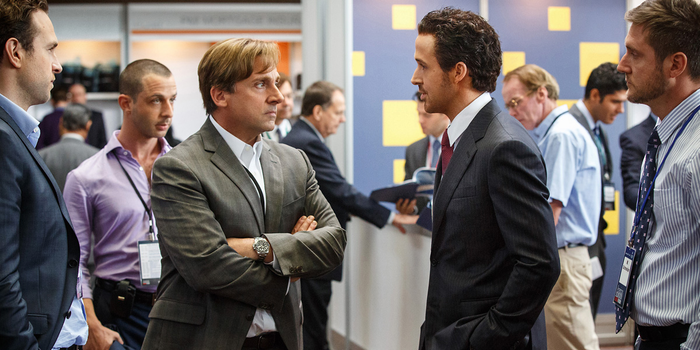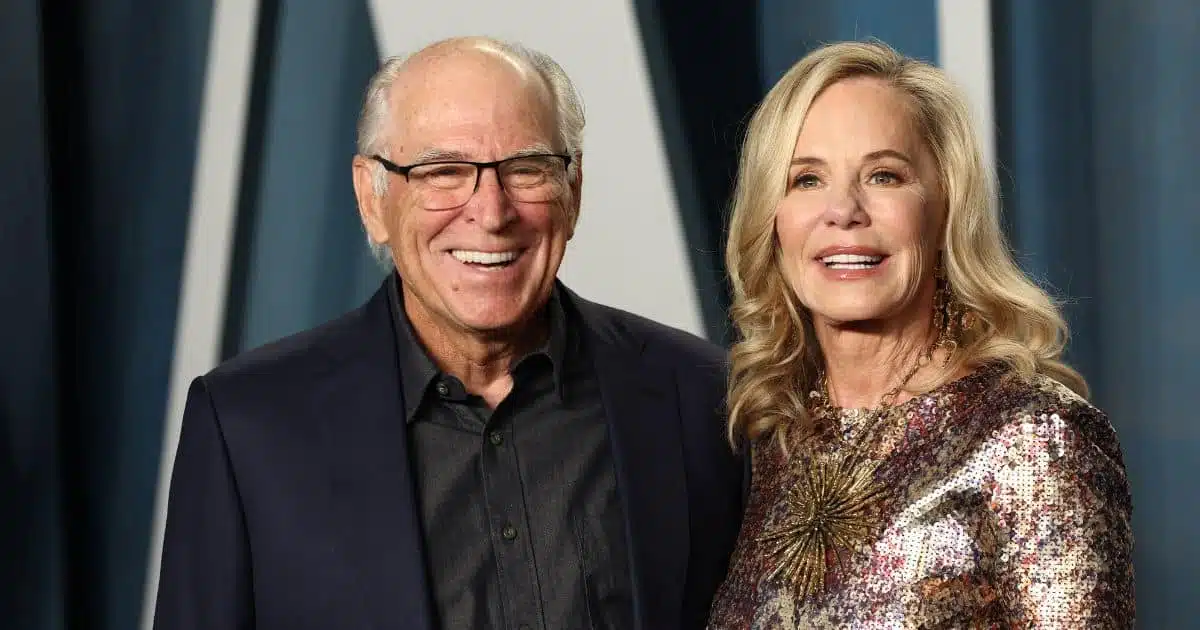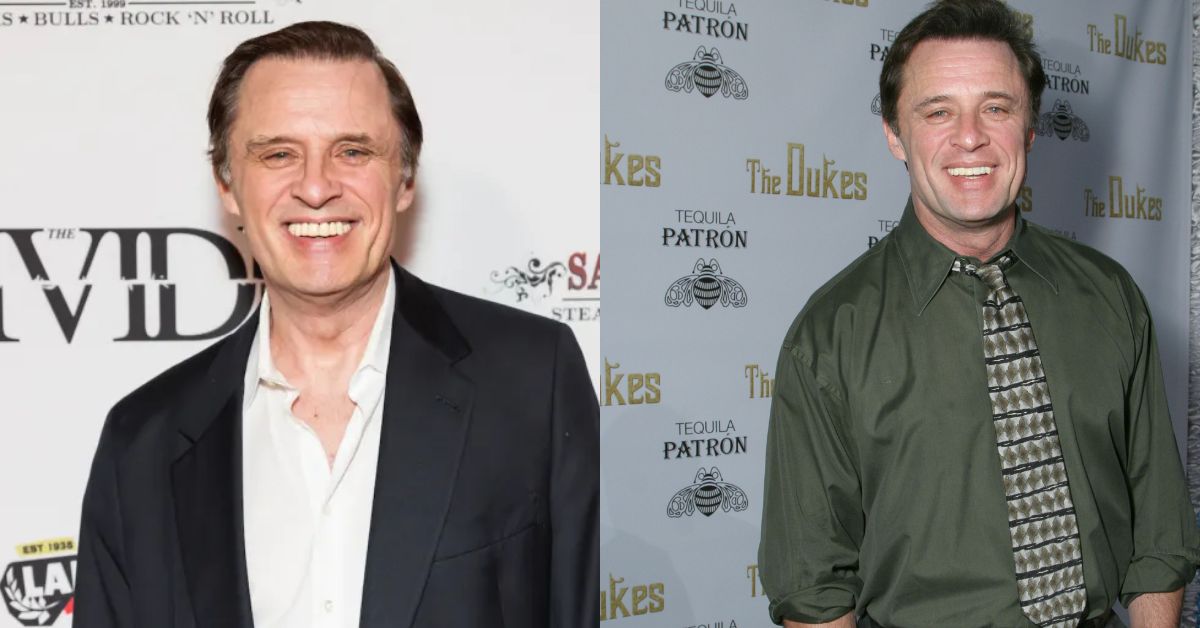The 2015 film The Big Short took a complex, real-life event—the 2007-2008 financial crisis—and brought it to the big screen with gripping intensity. Directed by Adam McKay, the movie boasted an all-star cast, including Steve Carell, who played one of the film’s most compelling characters: Mark Baum. While characters like Michael Burry (Christian Bale) and Jared Vennett (Ryan Gosling) also played key roles in the story, it was Mark Baum who captured the audience’s attention with his passionate, angry, and, at times, cynical approach to Wall Street’s greed and irresponsibility. But who exactly was Mark Baum? And what made him an unlikely hero in this tale of financial catastrophe?

Mark Baum is a hedge fund manager introduced in The Big Short as deeply disillusioned with the financial system. His team, operating under FrontPoint Partners, was known for being outspoken critics of Wall Street practices, especially in the years leading up to the financial meltdown. Throughout the film, Baum’s skepticism and frustration grow as he begins to understand the depth of the deception and greed fueling the housing bubble. His character is portrayed as someone with a strong moral compass, making him one of the movie’s more relatable and sympathetic figures.
However, while Mark Baum is a fictional name created for the film, his character is based on a real person—Steve Eisman. The decision to change the name for the film was made at Eisman’s request, likely to offer him some distance from Hollywood’s portrayal of his story. But despite the name change, the core of Baum’s character and actions in The Big Short align closely with those of Eisman in real life.

The Real-Life Inspiration: Steve Eisman
Steve Eisman, the real-life figure behind Mark Baum, was an investor and managing director at FrontPoint Partners, a hedge fund that became famous for its successful bet against the U.S. housing market. Eisman was born and raised in New York City. His academic background included a degree from the University of Pennsylvania and a law degree from Harvard. His career began as an analyst, focusing on financial institutions—a position that provided him with unique insights into the workings of banks and mortgage lenders.
Before the crisis, Eisman and his team began to realize that the booming subprime mortgage market was built on a foundation of dangerous lending practices. They found that mortgage-backed securities were being sold to investors with little understanding of their risk, and the companies involved were disregarding the potential for widespread defaults. In response, Eisman and his firm started shorting the housing market, which was seen as contrarian at the time but ultimately became extraordinarily profitable.
The Moral Complexity of Mark Baum
Mark Baum’s character in The Big Short is defined by his deep ethical concerns about Wall Street. Early in the film, we see Baum railing against the greed and dishonesty he observes among his peers. He is a man who doesn’t fit into the stereotypical image of a hedge fund manager; instead of chasing profits without consideration, Baum questions the very system in which he operates. This moral conflict drives much of his character’s development throughout the movie.
Baum’s skepticism comes to a head when he begins investigating the subprime mortgage market. His team digs into the details, speaking with various players in the financial system, from mortgage brokers to rating agencies. The more they learn, the more horrified they become by the scale of the fraud. Baum’s frustration builds as he realizes that millions of Americans will lose their homes due to Wall Street’s reckless behavior while the big banks and institutions responsible for the crisis remain largely unaccountable.
Yet despite his anger, Baum continues to invest in the housing market, profiting from the collapse he condemns. This moral paradox is central to his character. He knows that betting against subprime mortgages will make him rich, but he also understands that his success comes at the cost of widespread financial ruin. Baum’s struggle with this ethical dilemma is one of the most compelling aspects of his character in The Big Short.
The Unlikely Hero
Mark Baum is an unlikely hero in The Big Short because, at first glance, he doesn’t seem like someone who would be cast in a heroic role. He’s abrasive, outspoken, and often rude. He’s the kind who doesn’t shy away from confrontation, and his sharp tongue frequently gets him into trouble. But beneath his gruff exterior, Baum has a deep sense of justice. He genuinely cares about the people affected by the financial collapse and feels responsible for exposing the truth.
In one of the film’s most memorable scenes, Baum’s team attends a conference in Las Vegas, where they meet representatives from the financial industry who are still oblivious to the coming crash. Baum is disgusted by their arrogance and ignorance, and his frustration boils over in a confrontation where he essentially tells the entire industry to wake up. It’s a moment that highlights his willingness to stand up for what he believes in, even when it means going against the grain.
As the financial crisis unfolds, Baum’s initial anger turns into a grim realization. He begins to understand that the system is too corrupt to be reformed from within and that the crash is inevitable. His evolution from a man driven by moral outrage to one who accepts the harsh reality of the situation makes him a tragic but heroic figure in the story.
The Impact of Steve Carell’s Performance
Steve Carell’s portrayal of Mark Baum is one of the highlights of The Big Short. Known primarily for his comedic roles, Carell brings a surprising depth and seriousness to Baum’s character. His ability to convey Baum’s anger and vulnerability adds complexity to the role. Carell’s performance allows audiences to connect with Baum personally, even as he navigates the high-stakes world of finance.
Carell’s Baum is a man who is both deeply cynical and deeply empathetic. He sees the worst in people, especially those in positions of power, but he also cares about the consequences of their actions on ordinary Americans. This duality makes Baum such an interesting character and sets him apart from the other players in The Big Short. While others, like Michael Burry, are more focused on the numbers, Baum is concerned with the human cost of the crisis.
The Legacy of Mark Baum and Steve Eisman
While Mark Baum is a fictionalized character, the legacy of Steve Eisman, who inspired him, continues to be felt in the financial world. Eisman’s successful bet against the housing market is now the stuff of legend, and his role in predicting the financial crisis has earned him a place among the most astute investors of his generation.
Since the events of The Big Short, Eisman has continued his career in finance, though with less fanfare. He briefly ran his hedge fund, Emrys Partners, but closed it in 2014 due to underperformance. Today, he works as a portfolio manager at Neuberger Berman, where he continues to be an influential voice in the investment community.
Eisman has also remained vocal about the need for reform in the financial system. In interviews and public appearances, he has spoken out about the dangers of deregulation and the risks of repeating the mistakes that led to the 2008 crisis. His willingness to critique the system from within makes him, like his cinematic counterpart, an unlikely but important hero in the ongoing story of modern finance.
FAQs
Is Mark Baum from The Big Short based on a real person?
Yes, Mark Baum is based on real-life hedge fund manager Steve Eisman. Although the character’s name was changed for the movie, Baum’s actions and personality are closely aligned with Eisman’s, particularly his role in betting against the housing market before the 2007-2008 financial crisis.
Why did Steve Eisman ask to change his name in The Big Short?
Steve Eisman requested a name change for the film adaptation, possibly to distance himself from the Hollywood portrayal of his character and maintain some privacy. This is why the movie’s character is named Mark Baum instead of Steve Eisman.
How accurate is Steve Carell’s portrayal of Mark Baum/Steve Eisman in The Big Short?
Steve Carell’s portrayal is accurate, especially in capturing Eisman’s brash, outspoken personality and his ethical concerns about Wall Street’s practices. However, like any film adaptation, certain aspects were dramatized for cinematic effect.
Conclusion
Mark Baum, as portrayed in The Big Short, stands out not just for his intellect and insight but also for his unwavering sense of morality. His journey through the financial crisis is one of anger, frustration, and ultimately disillusionment. Yet, despite this, Baum emerges as a hero—albeit a reluctant and conflicted one—willing to speak truth to power in a world that often values profit over people.
While Steve Eisman, Baum’s real-life inspiration, may not have achieved the same level of cinematic fame, his role in uncovering the subprime mortgage disaster solidifies his place in financial history. Together, Baum and Eisman represent the rare figures in finance willing to challenge the system, making them both unlikely heroes in their own right.









